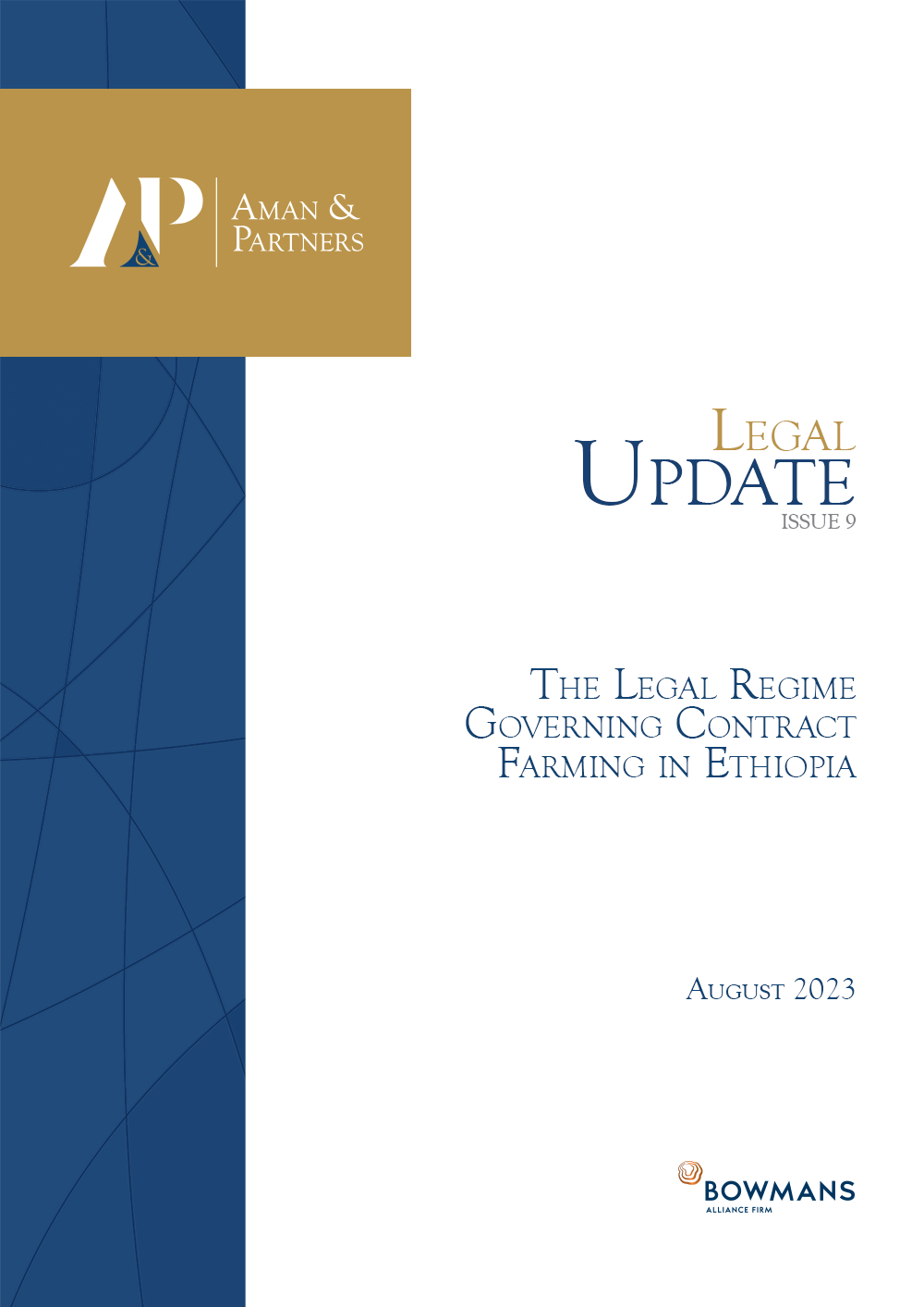Liberalization of the Digital Financial Services to Foreign Direct Investment
Ethiopia’s House of Peoples’ Representatives (“Parliament”) in its session held on 23 December 2022 promulgated a new law (unpublished) that repeals and replaces Proclamation No. 718/2011 on National Payment System. The new law (to be published as Proclamation No. 1282/2022) aims to primarily increase the effectiveness, control and inclusivity in financial services provision.
While few changes and clarifications have been introduced under the new law, the major change relates to opening up of the digital financial/mobile money sector to foreign investors. The focus of this legal update is to provide a high-level overview of the sector’s liberalization to foreign investors.
Shift from the Monopoly of Banks and Micro-finances
The banking business in Ethiopia has long remained a reserved/protected sector for domestic investors. Until recently, the National Bank of Ethiopia (NBE) has been issuing a banking and micro-finance license to traditional banking and micro-finance institution that have proliferated over the years.
Since the promulgation of the Banking Business Amendment Proclamation in 2019, digital financial service companies have been recognized as financial institutions that can provide banking business. Although the 2019 Banking Business Amendment Proclamation did not allow foreign investment in digital financial service companies, it marked a major shift in that it allowed non-bank/non-microfinance (such as technology companies) to engage in the banking business sector provided that the requirements set out by the NBE are fulfilled. More detailed discussion on this is published in our May and August 2020 Monthly Legal Updates.
Opening up to Foreign Investors
The financial service sector in Ethiopia has remained closed-off for foreign investors. The role of the few foreign investors such as M-Birr and Moneta (Amole) in the broader financial service ecosystem has been limited to the provision of technology services (including software platform provision and associated technical assistance) to licensed financial institutions.
Based on recent policy statements from government officials, there seems to be a direction to open up the financial services sector to foreign banks/investors. In addition, the recently approved National Digital Payment Strategy 2021–2024 foresees the potential role and participation of foreign fin-tech companies in the implementation of the digital payment strategy.
The approval and ratification of the new law (Proclamation No. 1282/2022) by the Parliament marks a specific commitment by the Ethiopian Government to allow foreign technology and fin-tech companies to invest in the digital financial services (mobile-money) sector. The major changes introduced under the new law are the following:
- The new law allows foreign investors to engage in the business of digital financial services (Payment Instrument Issuers and Payment System Operators) upon obtaining a license from the NBE. For the sake of clarity, payment instrument issuer provides financial services, including cash-in and cash-out, local money transfer, domestic payments, over the counter transactions (these are the same/similar services provided by Tele-Birr) while a payment system operator (such as EthSwitch SC) owns, operates and administers a payment system.
- A foreign investor would be required to pay an “investment protection fee” or a license fee to be allowed to invest in what would otherwise be a reserved sector for domestic investors. The NBE will issue a directive to determine the amount of the investment protection fee. The investment protection fee is in addition to the minimum ETB 50,000,000 paid-up capital requirement for Payment Instrument Issuers and the respective minimum capital requirements for Payment System Operators.
- While the regulatory trend so far required financial institutions (including Payment Instrument Issuers and Payment System Operators) to be set up as a Share Company with shareholding cap and minimum number of shareholder requirement, the new law has made an exception to licensed telecom operators. Under the new law, licensed telecom operators in Ethiopia would be allowed to set up a wholly-owned subsidiary (in the form of a Private Limited Company or a Share Company) to provide digital financial services without restrictions on shareholding cap.
- A final point to take note of is the fact that the new law contemplates the issuance of future Directives amending existing NBE requirements or conditions on licensing, operations, management, system interoperability, outsourcing and more. As such, the current directives on digital financial services (including the Licensing and Authorization of Payment Instrument Issuers Directive No. ONPS/01/2020) are anticipated to be amended and new directives (including directive on investment protection fee and directive on conditions for the establishment of a wholly owned subsidiary) are expected to be issued by the NBE.
Concluding Remarks
In what is part of a general policy direction in favour of liberalization of the financial sector, the Ethiopian Government has now opened the digital financial service to foreign investment. The details of the conditions under which foreign investors will be allowed to engage in the digital financial services are yet to be outlined under forthcoming directives that the NBE is anticipated to issue. As such, whether NBE’s market entry conditions and the sector regulations will have the potential to attract foreign investment into the untapped Ethiopia’s digital financial market remains to be seen.
Disclaimer
The information contained in this legal update is only for general information purposes. Nothing herein shall be considered and relied upon as a legal advice or a substitute thereto.





